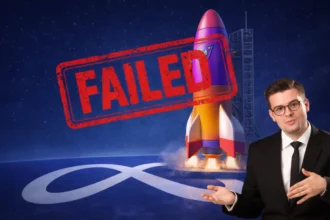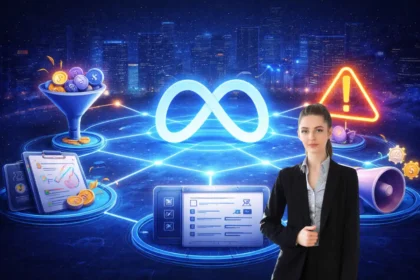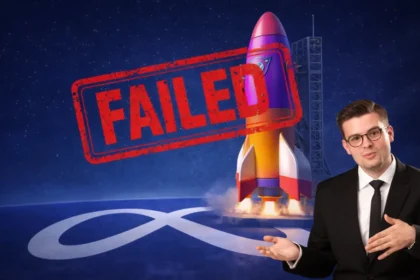Integrating landing pages with CRM and automation tools isn’t just smart marketing… it’s essential. When a visitor clicks your CTA and fills out your form, that’s not the end of the journey; it’s the start of a carefully planned nurturing process. Whether you’re using GoHighLevel, HubSpot, MailChimp, or a custom-built stack, post-click strategy determines whether your lead becomes a loyal customer or gets lost in the shuffle.
In this blog, we’ll explore the step-by-step mechanics of integrating landing pages with CRM and automation, demystify lead segmentation and tagging, show you how to build effective follow-up sequences, and explain how lead scoring can supercharge your conversions.
Why CRM Integration Matters Post-Click
Landing pages are the gateway to conversion, but without CRM integration, you’re flying blind. A properly configured CRM captures every action taken by a lead and builds a rich profile that evolves over time.
“You can’t manage what you don’t measure, and a CRM ensures you don’t miss a beat after the click.”
By integrating platforms like GoHighLevel, HubSpot, Zoho, Salesforce, or Mailchimp, you gain:
- Centralized contact data
- Tracking of every interaction
- Real-time notifications to sales teams
- Automated email sequences triggered by lead behavior
How to Integrate Landing Pages with CRM and Automation Tools
Modern platforms simplify this process, especially tools designed for marketers. Here’s a quick rundown:
HubSpot
- Use the Forms or Landing Pages tool with native CRM sync
- Automate workflows based on form submissions
- Trigger sales tasks, emails, and lead score updates
Mailchimp
- Connect landing pages directly to your email lists
- Use tags and segments for personalized follow-ups
- Automate welcome emails, drip campaigns, and re-engagement workflows
Zapier or Make (Integromat)
- Create custom workflows that push landing page data into any CRM or marketing tool
- Add filters for actions like SMS follow-ups or CRM tagging
Always test your landing page integrations in a sandbox or testing environment before going live.
Tagging and Segmenting Leads for Smart Targeting
Once the data enters your CRM, it’s time to organize it. Tagging and segmenting are your best friends when it comes to delivering the right message to the right person.
What is Tagging?
Tagging assigns specific labels to contacts based on actions or traits:
- Downloaded a whitepaper
- Clicked a pricing link
- Attended a webinar
- Came from a specific ad campaign
What is Segmentation?
Segmentation groups contacts into dynamic or static lists. For example:
- Warm leads from Google Ads
- Cold leads from an organic blog post
- High-value B2B leads from webinars
“Segmentation is not just good CRM hygiene; it’s the foundation of personalized, meaningful marketing.”
With tags and segments, you can deliver tailored email campaigns that resonate with different lead personas.
Automating Follow-Up Sequences That Convert
Now that your leads are segmented, it’s time to automate the follow-up. A structured email nurture sequence turns interest into intent.
Best Practices for Email Nurturing:
- Start with a Warm Welcome
Deliver value right away: free resources, onboarding steps, or a helpful guide. - Educate Before You Sell
Share blog content, success stories, and case studies to build trust. - Nurture Based on Behavior
Use if/ then logic to adapt the sequence depending on user engagement. - Introduce Your Offer Gradually
After 2–3 emails, introduce a soft CTA, like booking a consultation or downloading a proposal. - Re-Engage the Silent Leads
Add exit sequences for users who stop opening emails, try a final value-driven offer.
“Businesses using marketing automation to nurture leads see a 451% increase in qualified leads“
– Source: Annuitas Group
Lead Scoring: The Missing Link in Automation
Not all leads are equal. Some are just curious; others are almost ready to buy. Lead scoring helps prioritize who deserves more attention.
How Lead Scoring Works:
Assign points to each action:
- +10 for visiting pricing page
- +5 for opening 3 emails
- +15 for attending a demo
- -5 for not engaging in 30 days
Once a lead crosses a predefined threshold, your system can automatically:
- Notify your sales team
- Shift them to a “hot leads” segment
- Trigger advanced nurturing or a sales offer
“Lead scoring ensures your team focuses on the right leads at the right time.”
A Real-World Example: B2B SaaS Landing Page
Let’s say you run a SaaS tool. Your landing page promotes a free demo. After a visitor fills the form:
- The contact is synced with HubSpot
- They’re tagged as “Demo Interested – B2B”
- A 5-email sequence is triggered:
- Email 1: Demo confirmation and quick start guide
- Email 2: Case study of a similar client
- Email 3: Feature deep-dive
- Email 4: Pricing breakdown
- Email 5: Limited-time offer CTA
- Based on their engagement, lead scoring bumps them into your sales pipeline
This full-stack workflow boosts conversions, reduces drop-offs, and helps your sales team focus where it matters most.
Related Blogs: Landing Page Series
- What Is a Landing Page? And Why It’s Essential for Your Marketing Funnel
- Anatomy of High Converting Landing Page
- Designing for Conversion – UX/UI Best Practices for Landing Pages
- Words That Convert, Crafting Powerful Copy for Landing Pages
- From Visitors to Leads: Lead Magnets for Creating Irresistible Offers for Your Landing Pages
- Lead Capture Forms: What to Ask, What to Avoid for Better Conversions
- A/B Testing Your Landing Pages: What, Why, and How to Optimize
- What Happens After the Click? Integrating landing pages with CRM
- Driving Traffic to Landing Pages: SEO, Ads, and Social Media Tactics
- Landing Page Mistakes to Avoid in 2025 (+ Future Trends in Lead Gen)
Final Thoughts: It’s All About the Journey
The click is only the beginning. The magic lies in integrating landing pages with CRM and automation, using segmentation, email nurturing, and lead scoring to turn fleeting interest into lasting relationships.
Image Source Pexels.com













